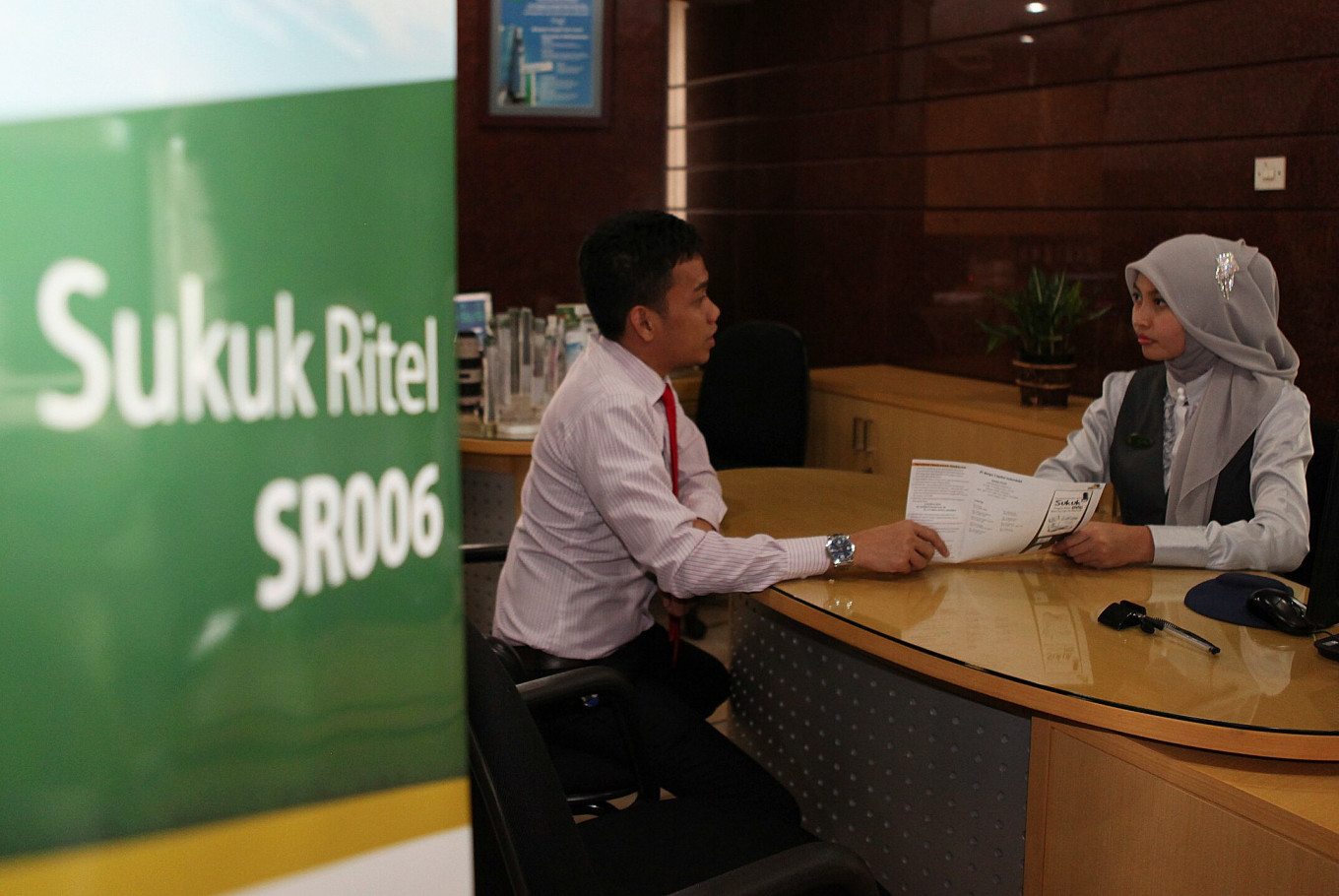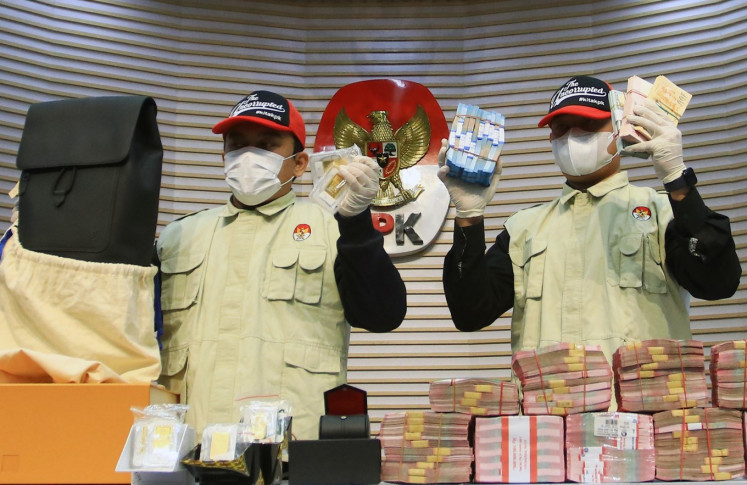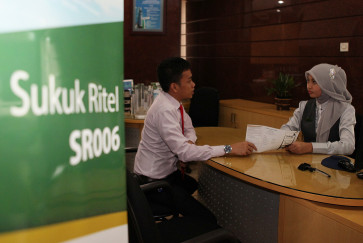Popular Reads
Top Results
Can't find what you're looking for?
View all search resultsPopular Reads
Top Results
Can't find what you're looking for?
View all search resultsAnalysis: BSI to expand into the Middle East by attracting UAE investors into the SOE
Change text size
Gift Premium Articles
to Anyone
 Customer Service (right) explains to customers (left) about the 2014 SR006 State Retail Sukuk at Bukopin Syariah Bank, Jakarta, Tuesday (18/02). The government offers SR-006 series Sukuk with a fixed fee of 8.75 percent per annum starting February 14 until February 28, 2014. The nominal value per unit is set at 1 million, with a minimum order of 5 million and a maximum of 5 billion. (JP/Nurhayati)
Customer Service (right) explains to customers (left) about the 2014 SR006 State Retail Sukuk at Bukopin Syariah Bank, Jakarta, Tuesday (18/02). The government offers SR-006 series Sukuk with a fixed fee of 8.75 percent per annum starting February 14 until February 28, 2014. The nominal value per unit is set at 1 million, with a minimum order of 5 million and a maximum of 5 billion. (JP/Nurhayati)
T
he recent establishment of a state-owned Bank Syariah Indonesia (BSI) representative office in Dubai is part of the government’s plan to attract investors from the United Arab Emirates (UAE) to join the sharia bank following last February’s announcement of divestment by two major shareholders, PT Bank Rakyat Indonesia (BRI) and PT Bank Negara Indonesia (BNI).
The departure of BRI and BNI is to allow new global investors to enter BSI to help BSI become a global sharia banking player, while maintaining state-owned Bank Mandiri as the majority shareholder of BSI. Without having global sharia banks as investors, it would be difficult for BSI to provide services for the government and Indonesian investors to access global sharia financial sources. Indonesia raises around US$3 billion a year from global sukuk (Islamic bond), mainly from Nasdaq Dubai.
Deputy State-Owned Enterprises (SOE) Minister Kartika Wirjoatmodjo said Dubai was an entryway for BSI to break into the global market for sharia banking. The UAE is ranked highest for conducting sharia financial business and halal value chains. This is because Dubai has the most advanced legal framework for sharia finance. The heart of the global sukuk market lies in Dubai, which is where the BSI representative office had its grand launch last year.
Kartika Wirjoatmodjo revealed last month that the government and BSI are looking for new investors for the sharia bank. A source said there were two potential investors for BSI, both global sharia banks. One of them is Abu Dhabi Islamic Bank (ADIB). ADIB is not new to BSI, the two have previously cooperated in a number of banking services, such as remittance, asset management and treasury.
BSI’s expansion to the Middle East has another purpose, that is to serve Indonesians working in and travelling into the region. Currently, there are around 5 million Indonesians working in the Middle East. In addition, over 200,000 Indonesians a year travel to Saudi Arabia for haj and over 500,000 people a year for minor haj or umrah. Many of them, especially umrah travelers, transit in Dubai. Indonesians spends a huge amount of money for haj and umrah, which in 2017 alone reached $940.8 million.
The other reason is that Indonesia and the UAE already have a strong bilateral trade relationship, with trade between the two reaching a total of US$4 billion between 2017 and 2022. Currently, BSI is in the process of upgrading its representative office in Dubai into a fully operational branch office. According to BSI vice president director Bob Tyasika Ananta, BSI has engaged local regulators for feasibility tests and is in the process of obtaining a full license. If everything goes according to its plan, BSI could potentially gain 10 to 20 percent of the US$4 billion in trade Indonesia has with UAE annually. Before BSI, there has yet to be an operational branch of an Indonesian bank in the Middle East, whether conventional or sharia.
What’s more


















